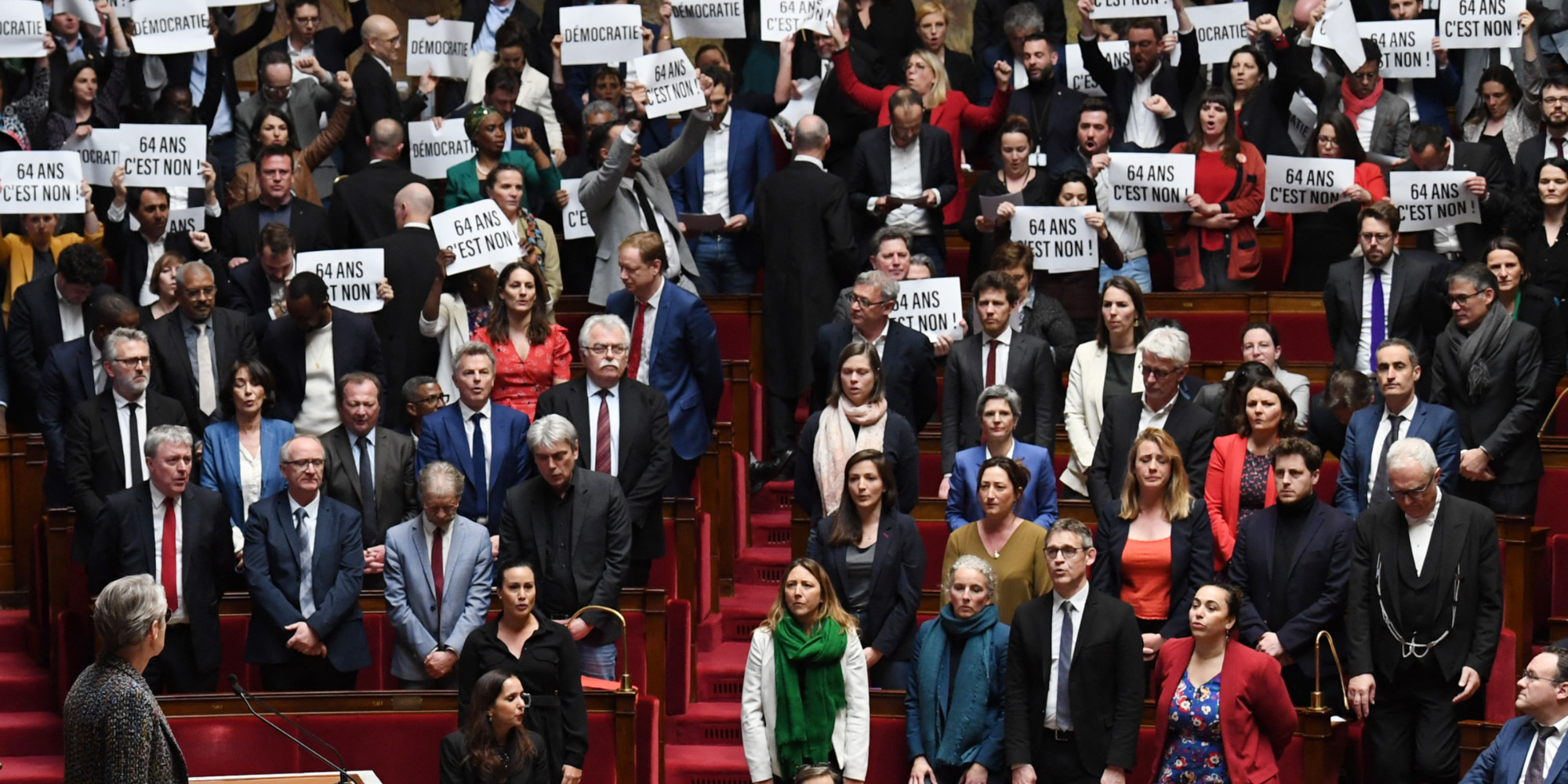Jacques Serais, edited by Alexandre Dalifard 06h14, March 17, 2023
While Prime Minister Elisabeth Borne used 49.3 on Thursday to pass the pension reform in the National Assembly, the parties opposed to the bill announce that they want to table motions of censure. A question arises in the face of this: is the government threatened by them?There will therefore have been no vote on the pension reform. Uncertain about the outcome of a potential election, Emmanuel Macron and Elisabeth Borne chose to go through the 49.3. The article of the Constitution now allows the oppositions to table motions of censure aimed at bringing down the government and at the same time, rendering the reform project null and void. These are due to be debated in the Chamber on Monday. Faced with this, is the government threatened today? Could one of these motions of censure succeed?
>> READ ALSO - Pension reform: how Emmanuel Macron resolved to use the 49.3
The LIOT group, the only threat
Only one motion of censure could possibly be threatening: that of the centrist group LIOT, Libertés, Indépendants, Outre-mer et Territoires. If it is an initiative of the smallest group in the National Assembly, 20 deputies, it is indeed the only motion likely to collect the votes of the deputies of the Nupes as well as that of the elected representatives of the National Rally. But beware of certain conditions. To succeed, the cross-party motion must win an absolute majority, i.e. 287 votes.
In other words, the votes of the deputies of the Nupes, the National Rally, the LIOT group and the non-attached would not be enough. Because today, this set of oppositions represents only 262 votes. Here again, it is the votes of the Republican deputies that promise to be decisive. To reach an absolute majority, at least 25 LR votes would be needed. This, however, seems, at this stage, unlikely. The leadership of the Republicans assures that his group will not support any slingshot.

